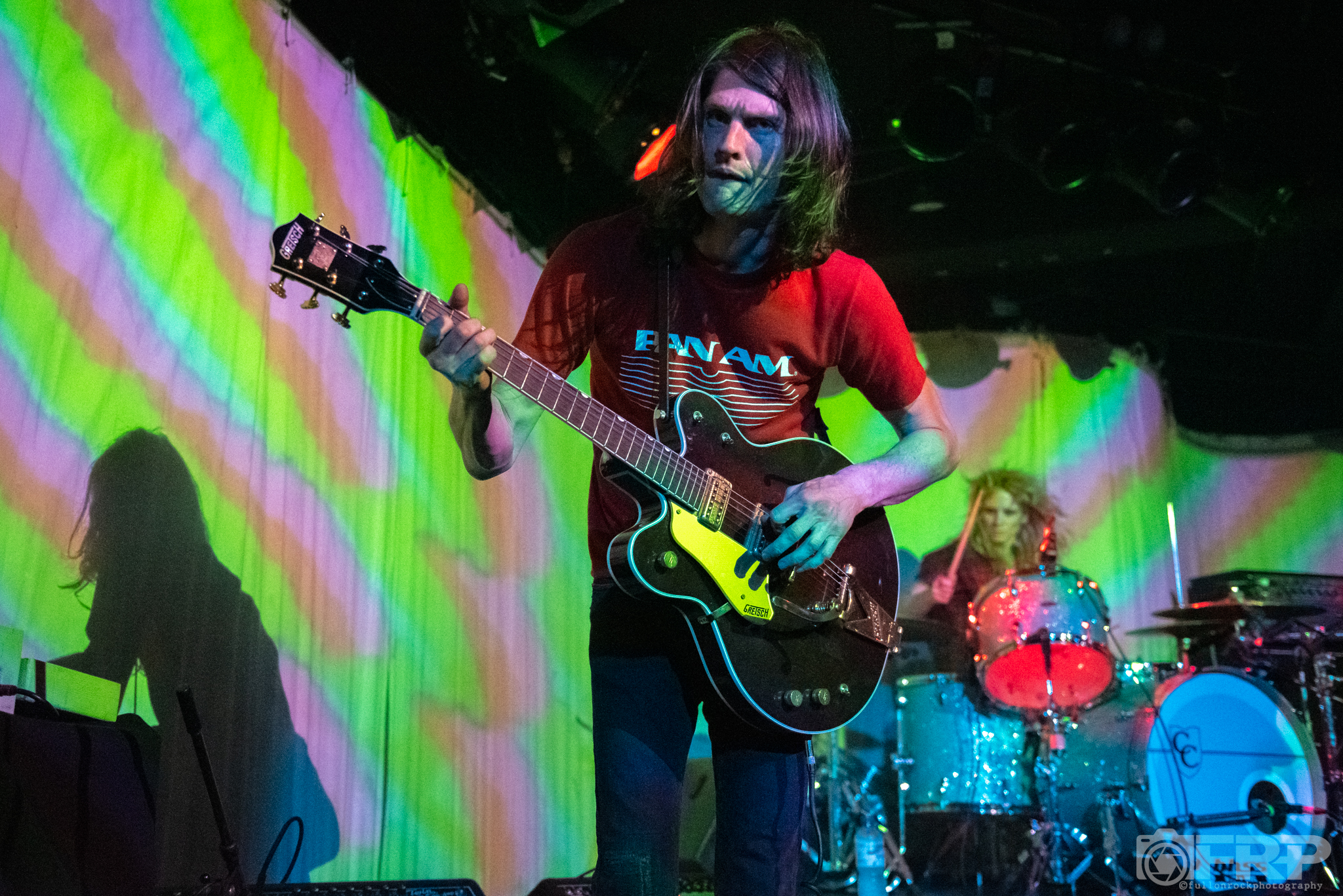The flag bearers for modern psychedelic rock, The Black Angels, are back with their first full-length studio release since Death Song in 2017. A fifteen-song cornucopia of mixed, psychedelic delights, this album promises to keep hard-core fans extremely excited, while attracting new admirers to the ranks of their loyal support base.
Wilderness of Mirrors is a reflection of the disturbed times the band, and the rest of the world for that matter, have had to endure over recent years. Between unnerving political leadership, a global pandemic, continuing environmental devastation and unnecessary wars, the band have used that time to create a masterpiece that maintains their place as a socially conscientious and environmentally aware musical flag-bearer.
Says vocalist/bassist Alex Maas, “a big focal point of this record is just the overall insanity that’s happening. What’s true? What’s not?” Adds guitarist Christian Bland, “We leave our music open to interpretation, but our topics are always universal themes – problems mankind has had since the beginning of time. You can relate them to any period.”
The band looked inward, focusing on both their ongoing creative and musical development as well as their own struggles amid the external chaos. Wilderness of Mirrors hits even more close to home, as the group recorded solely in the friendly confines of Austin for the first time in more than a decade and entrusted co-production duties to its longtime front-of-house engineer, Brett Orrison.
“It was a really great experience, because Brett understands us a lot on a musical level. We’ve grown together,” Maas says. “We worked on this record for over a year in the studio in Austin. I don’t know any other situation where we’d have been able to do that in a 9-to-5 way.” Adds Bland, “Doing it in Austin allowed for open creativity and took away the stress of rushing to get something done. We used our time wisely.”
That methodical modus operandi can be heard throughout Wilderness of Mirrors, which expertly refines the Black Angels’ psychedelic rock attack alongside a host of intriguing sounds and textures. “History of the Future” and opener “Without a Trace” are classic blasts of fuzzed-out guitars that simultaneously perk up the ears and jumpstart the mind (“Is it still possible to be invincible when everyone else is expendable?” Maas wonders aloud on the latter), while a fast, thumping bass line and an allusion to a world leader hiding in his bunker propel “Empires Falling” into an ominous decree: “Every time you wake, I want to end you.”
“I came in with a riff that was kind of slow and mid-tempo-y,” Bland says of the song. “When I showed it to the band, [drummer] Stephanie [Bailey] started playing a quicker beat over it, [guitarist] Jake [Garcia] added this cool mercurial lead guitar line, and [multi-instrumentalist] Ramiro [Verdooren] laid down a heavy driving bass, and all the sudden it had some rock’n’roll gasoline behind it. That’s the beauty of being with these folks. Everybody brings their creativity to the table and a song could become something you never had envisioned before.”
Elsewhere, The Black Angels revel in newfound experiments like the melancholy, acoustic guitar-driven “100 Flowers of Paracusia” and “Here and Now,” two highlights of the album’s back half. “We would have never put songs like that on records before, just because we weren’t in that world,” Maas says. “I’m proud that we pushed ourselves.” There’s also the ‘60s French pop homage “Firefly,’ which features the sultry intonations of Thievery Corporation’s LouLou Ghelichkani. “We don’t ever really bring people in to sing, but I thought it would be cool to have someone singing in French here – a back and forth, playful thing,” Maas says of “Firefly.” “It made the harmony more complete.”
Mellotron, strings and other keyboards are more prominent on Wilderness of Mirrors than ever before, and the album also benefits from the versatile contributions of new multi-instrumentalist Ramiro Verdooren, formerly of Austin band the Rotten Mangos. “Having that fresh perspective of a young person who’s a fucking incredible musician, it was a whole different ingredient,” enthuses Maas, who says Verdooren would often take in-progress songs home with him at night to experiment with tape loops and other accourtrements. Adds Bland, “If you think of something you want to add, Jake or Ramiro can do it immediately on whatever instrument.”
Another new addition to the team this time around was longtime Dinosaur Jr engineer John Agnello, who stepped in to mix Wilderness of Mirrors when The Black Angels were in need of a fresh set of ears. “When you self-produce your own record and do every single tiny little move yourself, you lose perspective,” Maas says. Adds Bland, “John’s outside perspective on it is what made the album shine. It became 3-D.”
But for all the experimentation, The Black Angels remain masterfully true to psych-rock forebears such as Syd Barrett, Roky Erickson, Arthur Lee and the members of the Velvet Underground, all of whom are namechecked on “The River.” The legacy of those artists is also at the core of the group’s beloved, long-running Levitation Festival, the veritable ground zero for the genre’s past, present and future. Says Bland, “Sitting down and channeling these spirits is something I’ve always wanted to do. It’s a little cryptic and spooky, almost like reincarnation. The river of knowledge keeps flowing, no matter what.
“The Velvet Underground song ‘I’ll Be Your Mirror’ – that’s what every Black Angels album has been about,” he continues. “You can’t work out your struggles unless you bring them to the forefront and think about them. If we can all think about them, maybe we can help save ourselves.”
Wilderness of Mirrors is out now on Partisan Records.
Feature Image: fullonrockphotography














No Comment